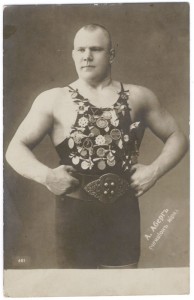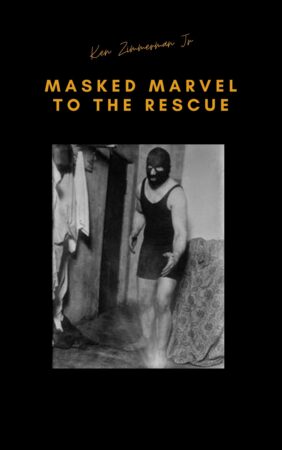Aberg Exposes Curley
Aleksander “Alex” Aberg ua headlines nyob rau hauv 1917 Thaum tus foob dua nws tsis kam fulfill ib wrestling siab nyob rau Boston thaum lub peb hlis ntuj 1917. Aberg pom zoo kom wrestle Wladek Zbyszko, Nws tus nrog sib ntaus thaum lub ntsiab 1915 New York International Wrestling Tournaments, Rau Boston promoter George Touhey. Txawm li cas los, Aberg pulled out of the bout shortly after signing an agreement to wrestle his longtime rival. Touhey filed a lawsuit for breach of contract.

Aleksander “Alex” Aberg (Public sau)
Aberg’s explanation for pulling out of the match was simple. Touhey, who was part of Jack Curley’s promotional combine, convinced him to sign for the match under the belief that the match would be a contest or legitimate wrestling match.
After signing for the match, Curley and Touhey told Aberg he would be losing the match to Zbyszko. Aberg refused and didn’t show up for the match on March 26, 1917.
During his deposition for the case, Aberg said Touhey bragged about telling wrestlers who would win or lose and how long the match would go. He also reportedly bragged to witnesses that all the matches he had promoted for the last 10 years had been prearranged.
Aberg signed for a catch-as-catch-can match with Zbyszko to be decided in a 2 tawm ntawm 3 fall match. Although a Greco-Roman wrestling specialist, he was confident he could beat Zbyszko anyway.
After being told to lose, Aberg refused to take part in the match unless his conditions were met. Ua ntej, the match would be a legitimate contest. Thib ob, tus $2,000.00 he was supposed to be paid would be deposited into Aberg’s account before the match. Peb, a non-Touhey appointed referee would have to be agreed upon by both camps. Touhey refused Aberg’s demands.
Aberg did admit to participating in some prearranged exhibitions for Jack Curley until he realized how the practice was despised in America. After he discovered the backlash against “faking”, he refused to wrestle in any more prearranged exhibitions.
Aberg didn’t seem to suffer any consequences from the court case but legitimate contests in American professional wrestling were ending. Aberg returned to Europe in 1917 after realizing his options would be limited in America.
Tuohey would soon be replaced in Boston by Paul Bowser. Jack Curley would remain a power in New York promotion for another several decades. Both Curley and Bower would be members of the Trust, which ran wrestling in the 1920s. Despite the exposure of the Aberg lawsuit, it didn’t seem to negatively impact their business.
Koj yuav tawm ib saib los nug cov lus nug txog qhov no los yog tej tsev xa rau kuv Facebook phab.
Tau qhov twg los: The San Francisco Examiner, Tej zaum 2, 1917 ib tsab, p. 15
Pin It

